US. Jordan Peele’s Mystery Thriller Explained
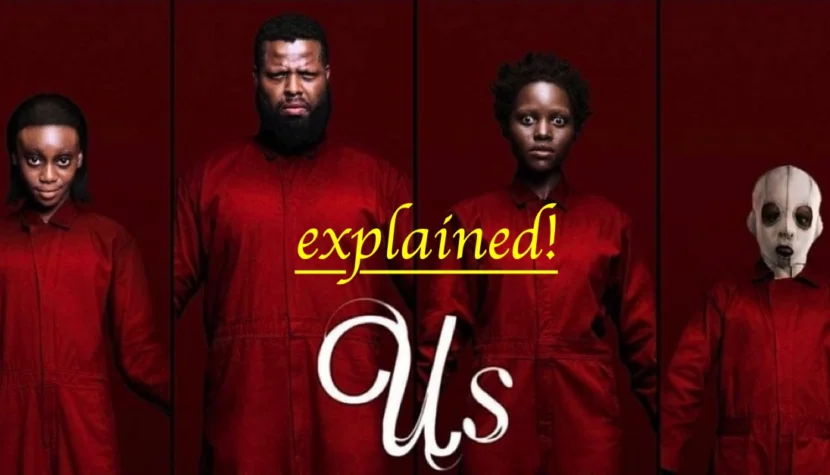
…I invite you to read my brief analysis of the film’s key elements.
Jordan Peele’s Us is a highly unsettling movie that, aside from fulfilling its primary function, also provides excellent social commentary and a highly engaging exercise in attention to detail. If you leave the cinema with a slight and understandable sense of confusion, I invite you to read my brief analysis of the film’s key elements.
Warning! This text reveals major plot points and is intended for those who have seen the film!
11:11

Director Jordan Peele very clearly emphasizes the symbolism of the number eleven in his latest film. From the prize number that young Adelaide chooses at the amusement park, to “Jeremiah 11:11” written on a piece of cardboard held by an extremely unsettling man, to the game score (eleven to eleven), the time noticed by Jason (11:11), or the cottage address ending in 2311 (23:11, which is again 11:11).
Throughout the film, I wondered what I would find in this Bible passage chosen by the director, and immediately after the screening, I began searching online for the quoted passage from the Book of Jeremiah. The result was as follows and fit perfectly into the film’s narrative:
Therefore, thus says the Lord: Behold, I will bring disaster upon them from which they cannot escape, and when they cry out to me, I will not hear them.
I also have the impression that the number eleven is culturally a symbol of excess, breaking the law, immoderation, and exaggeration.
Social Commentary
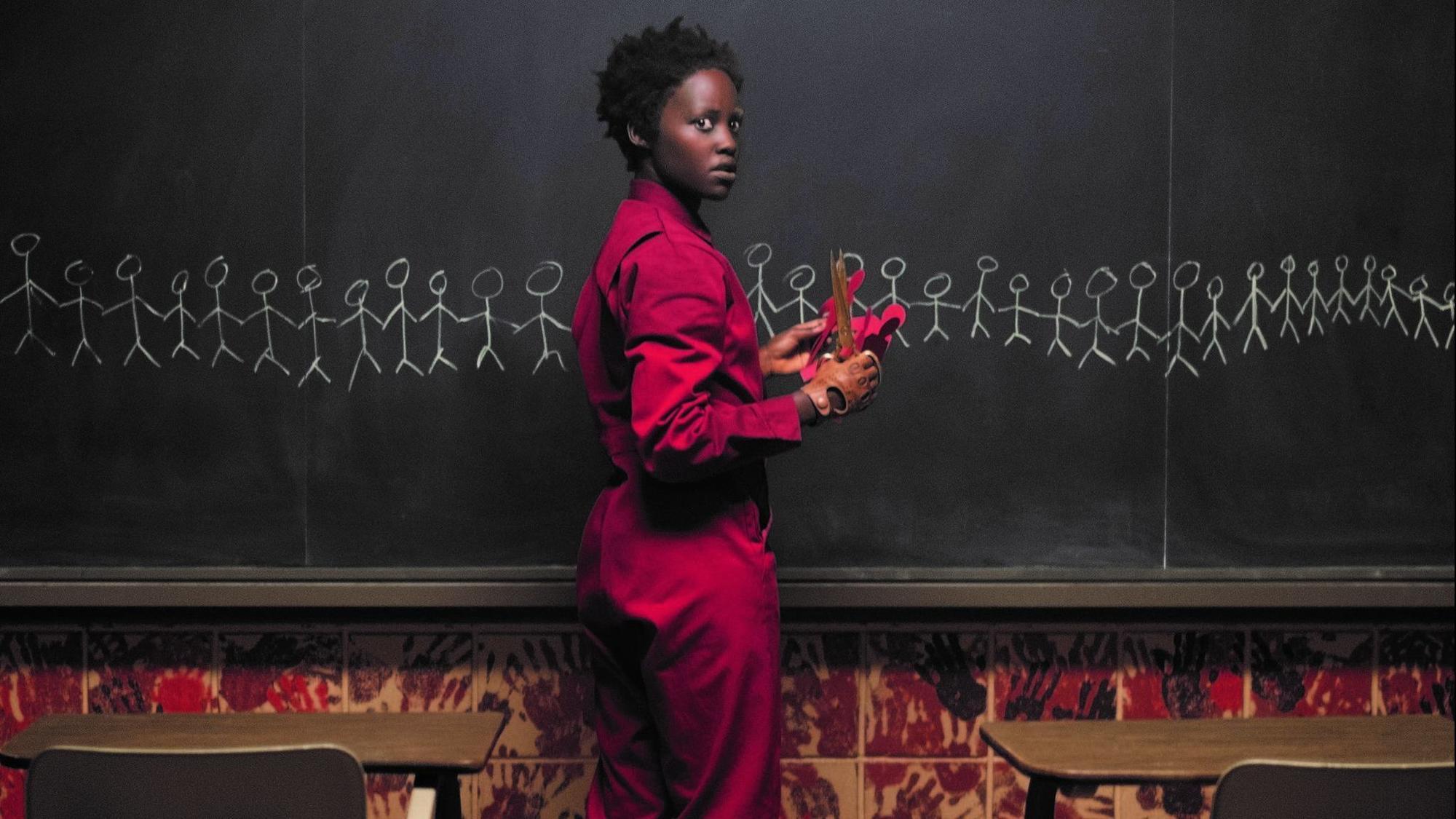
Peele deliberately chose the number symbolizing immoderation and excess because, in my opinion, the entire film is a critique of consumerism, conformity, and unhealthy social competition. There are plenty of clues—Gabe is jealous of his friend’s house and other possessions, the children are excited by the prospect of driving their wealthy neighbors’ car in the face of disaster, and the Wilson family competes over who has killed more doubles. There is also an excellent theme of modern artificial intelligence controlling the Tyler’s home, which fails at the only moment it could actually help the family—instead of calling the police, it mistakenly plays Fuck the Police.
In the context of the final twist (which I will get to shortly), it is also worth noting that everything living underground Adelaide does is driven by mass media messages (the film’s first scene—watching TV and the Hands Across America movement), while the aboveground doppelgänger lives in fear that her underground counterpart will find her. In short, that the truth about her origins will be revealed and everyone will notice she doesn’t fit the picture of a happy, well-off family.
Mother
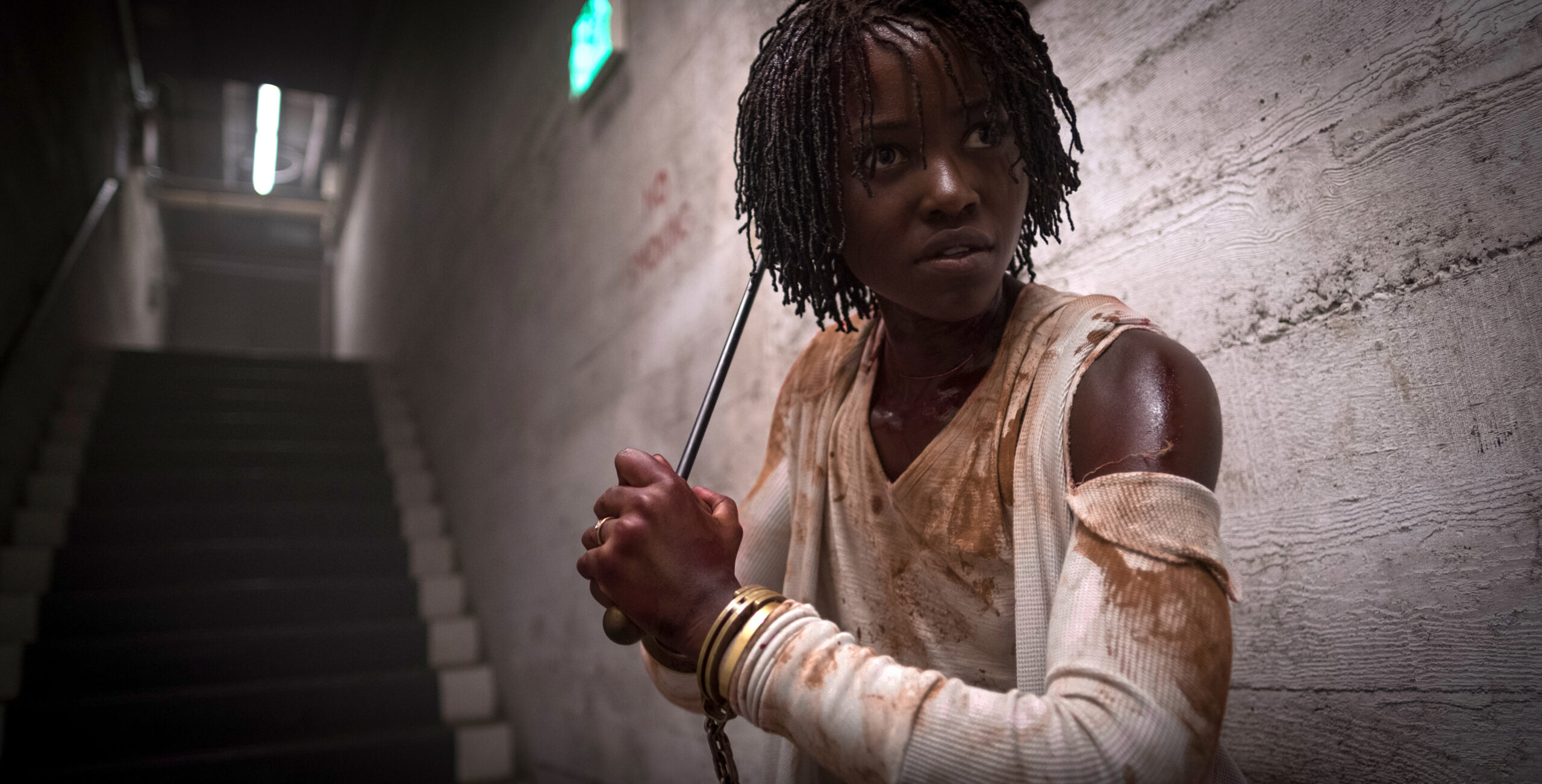
The character played by Lupita Nyong’o turns out to be the double in the film’s finale, who, as a child, kidnapped the girl living in our world, imprisoned her underground, and took her place. Jordan Peele knows how to play with the audience and provides several clues along the way that could reveal Adelaide’s true identity. In one of the film’s first scenes, during a family meal when the rest of the Wilson family eats fast food, the woman eats strawberries, which indicates, first of all, her difference and, secondly, suggests that she doesn’t eat meat—which may be related to trauma from living underground and having to feed on raw rabbits. At the beach, she admits she often has trouble talking to other people, and from the flashbacks, we learn that after the amusement park incident, Adelaide stopped speaking altogether. Initially, the audience believes all these strange behaviors result from childhood trauma, but the truth, as it turns out, is quite different—our heroine simply couldn’t speak.
Government Conspiracy
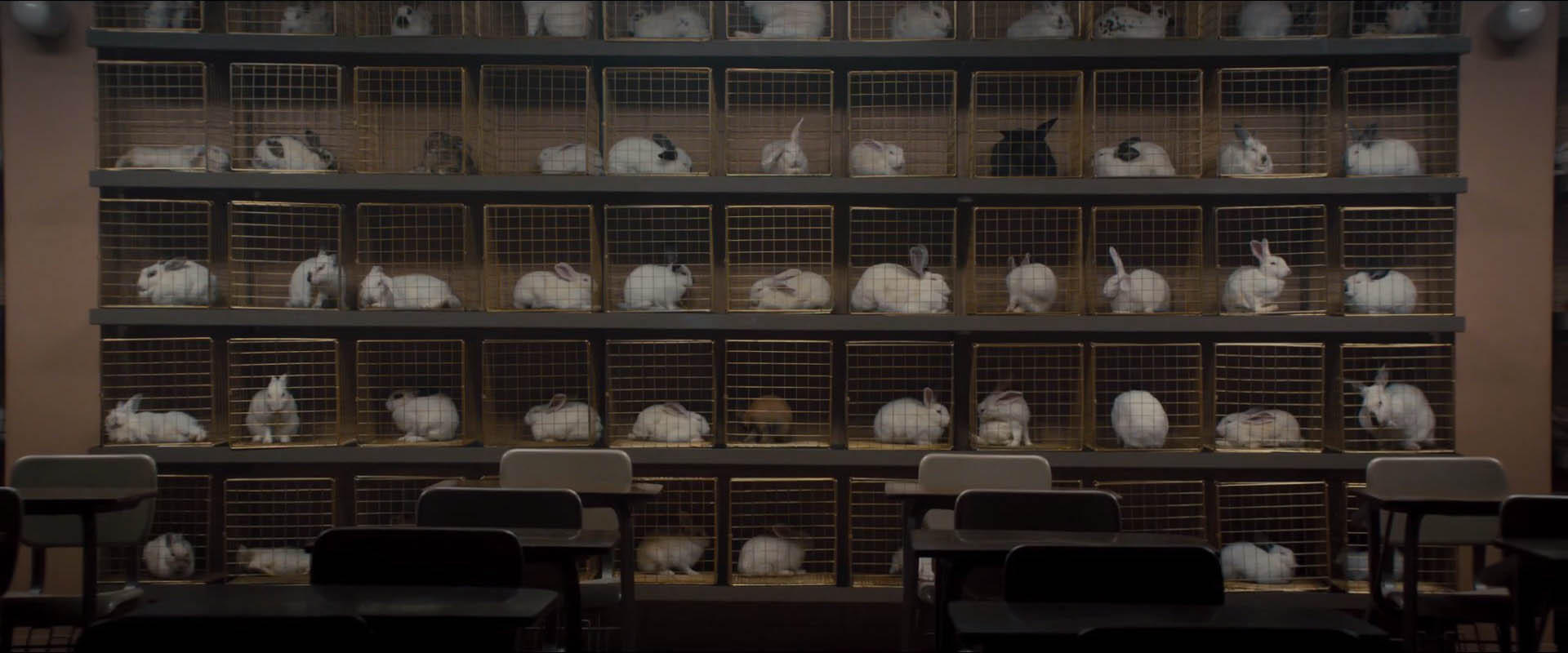
From the finale, we also learn that the people living underground are the result of a failed government experiment that underground Adelaide believed was intended for better control of people (another reference to conformity), and it seems it was also meant to help master cloning (hence the rabbits underground, which probably served as… guinea pigs). The problem was that they could clone the body, but not the soul. This, in turn, may be a reference to Get Out, the director’s previous film, where the situation was reversed—the consciousness could be transferred, but another body was needed. Do both films create a sort of universe, and were the people responsible for the actions in Get Out also involved in the experiments in Us? It’s possible. It’s also worth noting that the director quickly leads us to the government conspiracy angle—Zora, the main character’s daughter, mentions another conspiracy theory and is disappointed that her parents are not interested in the government’s illegal activities.
Underground Adelaide repeatedly emphasizes that they are people (and even that they are Americans), and although they are exactly the same (literally here!) as the main characters, the government has condemned them to live in poverty. This is a clear allusion to systemic inequalities.
Son
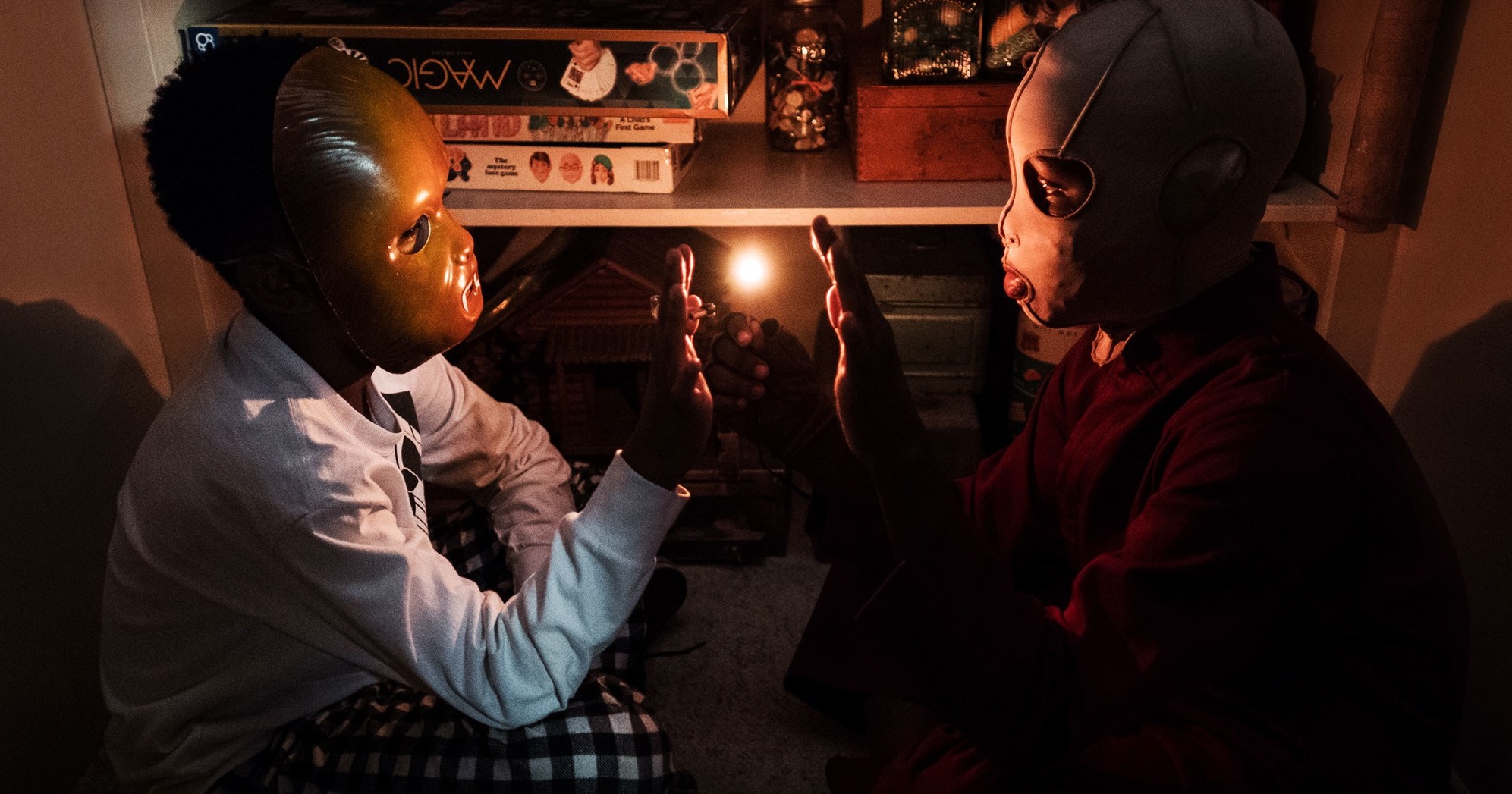
And finally, perhaps the most interesting, hardest to spot, and not entirely certain clue. Was Adelaide the only member of the Wilson family replaced by an underground counterpart? Many things suggest that not necessarily. As early as the film’s premiere day, I found a theory on the Internet suggesting that the same thing happened to Jason—Adelaide’s son. However, this did not happen during the beach scene we see in the film, but during a previous vacation the Wilson family also spent in California’s Santa Cruz. The film presents several motifs indicating that the Jason on screen is not their real child. Firstly, he gets trapped in the closet again, even though, according to his sister, he did this a year ago. Secondly, he uses words he didn’t know before, which surprises and angers his parents. Thirdly, he knows he performed a magic trick during last year’s vacation but doesn’t remember how. Fourthly, he is the only family member against whom the family in red costumes has no hostile intentions—after all, he was their member until recently. The most apparent clue, however, seems to be that he builds a sand tunnel on the beach instead of a castle in a completely unconventional way.
The Rest
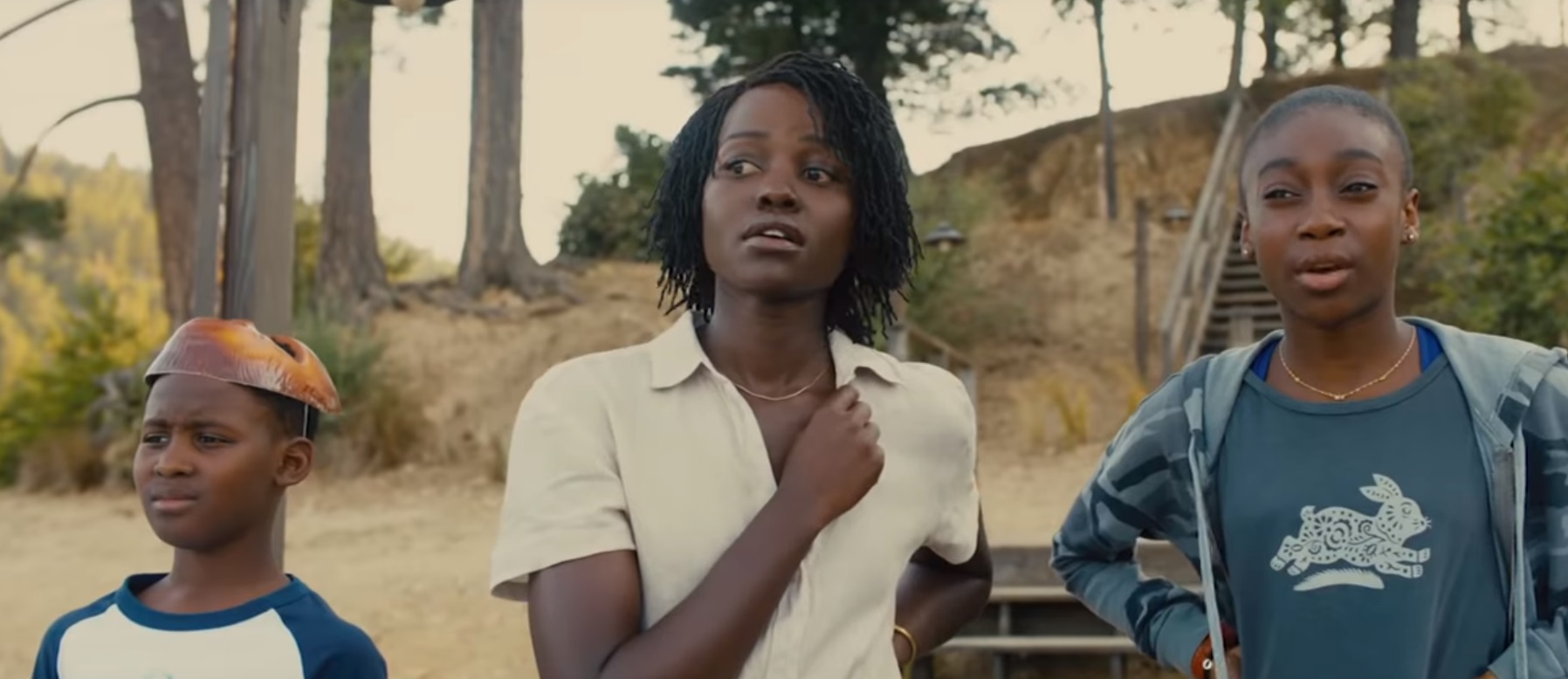
Of course, these are just the main conclusions, the most noticeable clues, my impressions, and thoughts immediately after the exciting visit to the cinema. Jordan Peele—similarly to what he did in Get Out—certainly filled the film with symbols, references, games, and jokes that the Internet will meticulously pick up in the coming months, and the director himself, in numerous interviews, will also gladly share his own thoughts, just as he did with his previous production.
During my first viewing, I noticed the obvious joke with the flare, the non-coincidental rabbit on the main character’s daughter’s T-shirt, the recurring colorful cereal bowl known from Get Out, or the fact that Peele once again dresses the aggressors in red (more about the symbolic meanings of these colors in my analysis of Get Out).
There’s still a lot of fun ahead of us.

